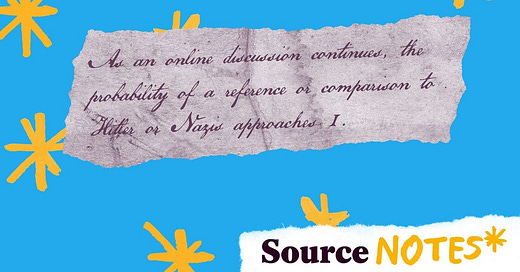Has Godwin’s Law Been Disproven?
New research calls the law into question—but also what it is for.
“As an online discussion continues, the probability of a reference or comparison to Hitler or Nazis approaches 1.” Thus states Godwin’s Law, also known as Godwin’s law of Nazi analogies, named after Mike Godwin, an American attorney and writer (and Future Tense contributor). Godwin articulated his rule in 1990, in the early days of the internet, after noticing that Nazi references had gotten out of hand on Usenet newsgroups and bulletin board systems.
More than 30 years later, Godwin’s Law is still popular. It’s the subject of its own entries on Wikipedia and the Oxford English Dictionary, featured everywhere from PBS to Know Your Meme. It persists because it does double duty. On the one hand, Godwin’s Law is a somewhat-whimsical reminder that internet conversations can escalate quickly. At the same time, it warns against making casual comparisons to the horrors of the Holocaust. Don’t invoke the ultimate reference to evil in vain. The moment in the debate when someone glibly calls their ideological opponent a “Nazi” is what the French call “the Godwin point.”
But recent academic research makes a bold claim: Godwin’s Law does not work in practice. The study’s authors reviewed a sampling of nearly 200 million Reddit posts and found that references to “Hitler” and “Nazis” did not occur with a high degree of frequency. In fact, after a certain point, the probability of observing these words actually decreased.





